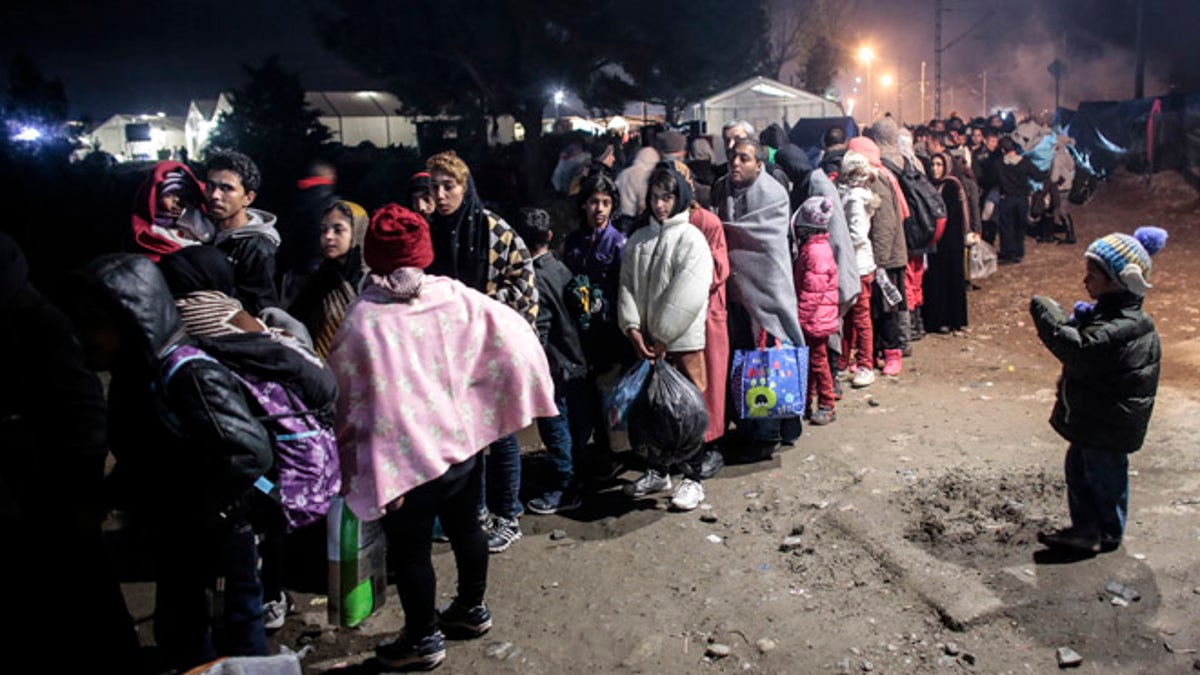
IDOMENI, GREECE - NOVEMBER 26: Migrants from Syria waits in line to cross the border near the northern Greek village of Idomeni on November 26, 2015 at the Greek-Macedonian border. Migrants stranded at the border have been protesting for days as Macedonia declared it would only grant passage to those fleeing conflict in Syria, Iraq and Afghanistan, and that all others deemed "economic migrants" would be sent back. (Photo by Milos Bicanski/Getty Images) (2015 Getty Images)
Argentina has arrested seven Syrian citizens in Buenos Aires for using falsified Greek passports, continuing a trend of migrants from the troubled Middle Eastern nation using Latin America as a pathway to refugee status.
The Syrians, who were detained in Buenos Aires in two operations that targeted false passport holders, said that they were refugees fleeing their home country. Two of the seven were purportedly on their way to Uruguay.
"According to the statements from detainees, the reason for the trip is due to internal unrest that exists in the region, especially in Syria, particularly represented by the persecution of those who identify as Christian and seeking to get refugee status in another country," an unnamed Argentinian official told La Nación.
A federal judge in Argentina has also ordered the arrest of a Turkish national, Ibrahim Dehioglu, who officials in the South American nation say is responsible for helping the Syrian obtain the passports and for shuttling them around the country.
"The detained individuals are suspected to belong to a criminal organization dedicated to human trafficking and falsification of documents, although other criminal activity is not excluded," an investigator with Argentina’s Federal Police told La Nación.
The arrests in Argentina are the most recent in a string of similar incidents occurring throughout Latin America as refugees from the war-torn nation of Syria search for alternatives to Europe, a region that has become even more wary of accepting new arrivals following last month’s Paris terrorist attacks.
While traditionally the smuggling routes throughout Latin America have been used exclusively by people from the region to cross the U.S.'s southern border, in recent years there has been a growing trend of migrants from other parts of the globe – Syrians being only the latest – joining travelers from countries like Cuba, Guatemala and Mexico.
Smugglers use a combination of shipping routes, flights and various forms of ground travel to shuffle migrants to Latin America and, from there, ferry them into the U.S. using a pipeline of human smuggling contacts that is facilitated by countries in Latin America with lax immigration policies. Officials in those countries expect pay-offs and frequently falsified documents like the ones found on the Syrian migrants in Argentina.
Fear of terrorists entering the country – especially in the wake of deadly terror attacks recently in France, Lebanon and Mali – has cast more light on the human smuggling problem and the dangers that accompany it.
"There are so many people leaving Syria now," Shaina Aber, policy director for the National Advocacy Office of the Jesuit Conference of Canada and the U.S., told the Washington Post. "It's not surprising that some are making their way around the globe the best they know how."
